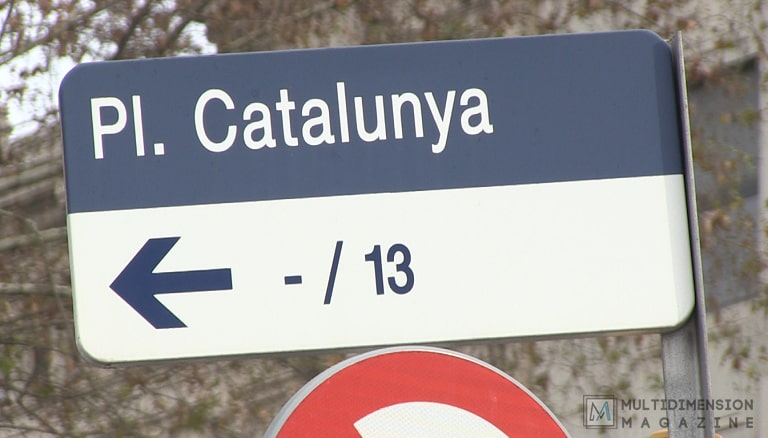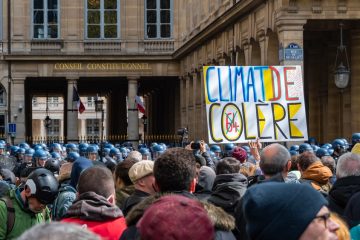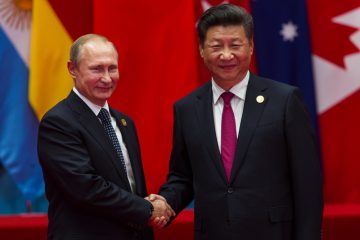Written by : Artur Domingo Barnils, Barcelona, Spain
Photo credit: Multidimension
The WHO declared COVID-19 as a pandemic in March of 2020. Since then we have witnessed sweeping changes in the world. While social, economic and political changes were expected; science, technology and education too have undergone a revamp.
We are being forced to confront the looming climate crisis, the inefficiency of the neoliberal model of capitalism, the need to reset our priorities as humans and establish a better relationship with the planet. Optimists opine that this is a chance to come back stronger and turn over a new leaf. Pessimists, predict a future muddled with several crises – climate change, social polarization and progressive poverty of large sectors of population with an inevitable drift towards authoritarian societies.
Nevertheless, the question arises- what should be prioritized? Ideas that will help us evolve towards a more just and sustainable society. This includes the requirement of quality public services to meet society’s needs, especially those in the field of health, elder care and education, amongst others. There needs to be widespread changes in the economic system especially wealth distribution and reduction of predatory activities towards the planet. I will elaborate on these issues in the subsequent paragraphs.
This fast transforming situation demands competent and committed people and social workers who can face this crisis and work towards making the necessary changes. Politics would require representatives and organizations with principles and eagerness to find solutions, with capacity for dialogue and without sectarianism. Reality, nevertheless, is quite different in our areas, whether we refer to the Spanish State or Catalan policy.
Beyond the fact that most worldwide rulers reacted late and inefficiently, the decisions adopted by the Spanish State government were too politicized, and had little to do with the efficiency of facing the crisis. With the first decree of the state of alarm, the option taken was centralizing instead of cooperating with the different administrations, thereby destroying the structure of a presumably decentralized state through its autonomous communities. The health competences were mostly transferred and therefore the central government did not have the necessary mechanisms for certain tasks. This idea of centralizing was tinged with inefficiency and errors on many occasions, and also with distrust.
To justify this centralization – that probably obeyed to the political weakness of the current government – a ridiculous statement was used: “the virus does not know territories”. If it was so, why did Europe close borders between countries or confine specific areas? Speeches by the Spanish government were loaded with war terminology and was exaggerated by the presence of the army during press conferences. This, of course, had to be changed afterwards.
On the part of some sectors of the Catalan independence movement, tactical mistakes were also made. This includes the need to transform the discussion from the most appropriate health and social measures into debates overloaded with political intent and as tool for confronting the central government. The most unfortunate instance of this politicization has been the interventions of some members of the Catalan Government at press conferences. They used hostile language and showed contempt for the government of the Spanish State, which went beyond the reasonable criticisms that one could make. On the other hand, the sectarian quarrels between the Catalan independence parties are also regrettable.
Too often, politicians within parties seek party revenues. Not surprisingly, the Spanish right and far right parties, try to take advantage of the difficulties and act with utmost irresponsibility.
Unfortunately, in times of social media and virtual network communication, low-level politics is adrift with political and social hooliganism. Fanaticism, often in the form of verbal aggression, considers the opponent as always wrong and one’s own leader to be infallible. It bases its ideals on a dogma and anyone who differs from it is considered a traitor, even if they belong to their own party. Only policies made with firm convictions, coherence, and intellectual solvency don’t havean effect the politics of sectarian leaders. This does not imply that there is no room for argument. On the contrary arguments strengthen and question the policies, and make them even more air tight. At the end of the day we need to face the world that awaits us at the other end of the pandemic, because that world needs better social attitudes, leaders and politicians.
An uncertain future: Ecological Humanism or Barbarism?
After World War II, Europe had to face the aftermath of two big conflagrations in less than 30 years, as well as the horrors of fascism and Nazism. As Stephen Hassel lucidly reminded us, a generation with social conscience understood that it was necessary to adopt deep measures to face the world that emerged from the tragedy. This is how what we know as the Welfare State was created to prevent us from falling into the disaster again. A strong social democracy pressured by an organized worker’s movement, along with the influence of the so-called “real socialism” regimes; in alliance with other forces, led this process of transformation. Unfortunately, this however, stayed halfway. Often, humanity needs to go through cataclysms to reconsider profound changes in the way to organize itself and live. Will the COVID-19 experience be enough to react to and face, in an intelligent and humanistic way, the problems we face in this century?
In Tony Judy’s work “Ill fares the land” he asks himself “Why is it so difficult for us to even imagine another kind of society? What is it that makes so unreachable the idea of several different dispositions that would go in benefit of everyone? Today, building another kind of society and adopting dispositions for the benefit of all -and “of all” meaning also of our habitat, the planet- is urgent and essential if we want to avoid inevitable social and ecological disaster and heightened suffering.
“Imagining” a different society isn’t difficult, since there is no lack of serious propositions in many areas that would allow achieving a more harmonic and convivial world. The main difficulty lies in the economic, political and geostrategic powerful interests, as well as the social and individual inertia that go against them and of which we are often accomplices, even if it is only due to inaction. In the last few months, some propositions have reappeared which, if they become viable, they would bring us closer to this new paradigm that we direly and urgently need. Certainly, we have a long way to go, because the immediate future will raise new challenges.
The pandemic has highlighted the importance of having sufficient, universal and quality public services in all the basic areas of human life. Starting with a public healthcare system equipped with sufficient resources and well-treated professionals, from doctors to nurses as well as cleaning staff. Other services such as education, social attention and elderly care must be a priority and everyone needs to be treated with dignity. As Leonardo Boff wrote, “What this pandemic reveals is that there are goods and services that should remain out of the market laws.” It has also become evident the need of a Citizen’s Basic Income that eradicates poverty in increasing sectors of society, as well as the right to decent housing. All this can be possible if we put the right to a dignified life above all else. What makes it impossible is neoliberal capitalism, which subordinates politics to the market.
We will have to rethink and renew the means of production, as well as the transport systems. The pandemic has made visible the problems of the abusive industrial delocalization, for example, when facemasks and respirators are needed, though we can extend this to many other essential products. It will be necessary to promote renewable and clean energy and to develop industries that pollute the least. Climate emergency puts us in front of an eventual crisis that could have much worse consequences than the current pandemic. Aside from these demands we need to allocate the necessary resources to scientific research, but not limit ourselves to the health field. Scientific research also must go hand in hand with the development of studies and debates within social human sciences and culture in general. Trusting in technology and science, without ethics, can lead us to other types of disasters.
This also brings forth other political issues that we will have to face. Will we evolve into a more humanistic, free and democratic society? Or will instrumentalized fear lead us to fall into the arms of authoritarian solutions? The development of new information technologies can be necessary or unavoidable, but we must take care of several impacts. On the one hand there is ecological and public health impact and, on the other hand, there is a possibility of a social control and mass cyber surveillance, that would make George Orwell’s 1984 seem like a fairy tale. What role should the United Nations and several international organizations play? What reforms will be needed to avoid this scenario?
We shall also have to rethink what we consider personal development. Gandhi taught us that one cannot dissociate social transformation from their own individual improvement and capacity of introspection. We will have to stop the obsession for extreme consumerism and the idea that we can grow economically infinitely. There are other ways of growing, undoubtedly with more enriching outcomes.
All these changes are gigantic without a doubt and, might probably, be difficult to implement all of a sudden. However the crisis we are facing isn’t small; therefore we will have to make hard choices. Ignacio Ramonet quotes a British journalist and historian who says: ” The new world will not appear magically. We will have to fight for it.” All the important social and political changes have required fighting and striving. This is why in the midst of these challenges, one might be shocked at the mediocrity and tactics of many political and social leaders, everywhere. The fanaticism of many of their followers is worrying as well. However at the same time, there is no doubt that there are a lot of people ready to rethink and work for a better world.
About the author:
Artur Domingo Barnils is a historian who writes on general policy issues; the situation in Catalonia and Spain; and about non-violent civil disobedience and especially about the legacy of Mahatma Gandhi. ([email protected])
This article was originally published in Viento Sur, Spain.




